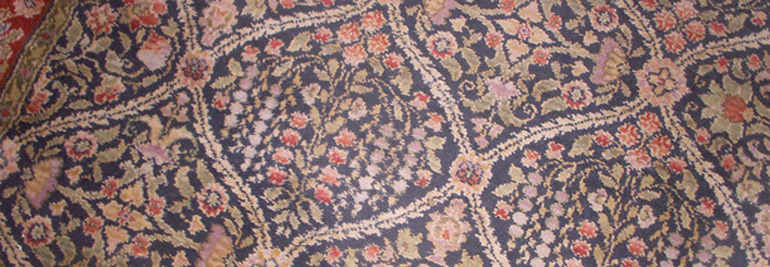Reading Note:
Michael Angier on Gilbert and Sullivan
Wednesday, 13 July 2011
Wednesday, July 13th, 2011
It is impossible to read Michael Ainger’s Gilbert and Sullivan: A Dual Biography without hearing the voice of Jim Broadbent intone the many, many letters and memoranda that are quoted in the text. It’s a testament to the spot-on casting of Mike Leigh’s Topsy-Turvey that not only do all the people in Ainger’s book seem weirdly familiar, as if you had known them, but even the photographs don’t do much to dent this effect. It’s uncanny that a film made by a proverbially vernacular writer-director should take on, over time, the patina of a Merchant-Ivory production.Â
In any case, as I say, there are lots of letters. William Schwenck Gilbert (1836-1911) was something of a terrier — unusual in someone tall and commanding. When he knew that he was right, he simply would not let go. And not only would he persist, but he would rail indignantly at anyone who complained about his persistence. He was only doing what was right! Surely no man should ever have to apologize for that! It’s amazing that he wasn’t put down by popular acclamation. Instead, as we know, he was hailed by popular acclamation, doubtless because the number of people who had to deal with him was a microscopic fraction of the number that enjoyed his writing for publication and for the stage.Â
Sullivan is both more appealing and a greater disappointment. (Actually, there is really nothing disappointing about Gilbert at all, considered biographically; he was right!) Charming and easy-going, Sullivan liked pleasing people, so long as it pleased him to do so. He was also a weak man, as pleasure seekers often are when good things come easily. What was weak about Sullivan artistically wasn’t his yielding to financial temptation and writing the lucrative Savoy operas, it was rather his failure to recognize that this is what he was good at. He wasn’t strong enough to correct people who insisted that he was capable of “greater things” — that most Victorian of miasmas. Without equating Gilbert to Mozart, I would venture that Sullivan was very much like Lorenzo da Ponte, whose great work was summoned by a fertile collaboration. If Gilbert’s best work is also the fruit of that collaboration, it’s from a different kind of luck. Read the Bab Ballads, many of which are quite close to lyrics from the Savoy operas, and you’ll find that Gilbert was always Gilbert. (As was Mozart.) Sullivan wasn’t always Sullivan; perhaps it’s better to say that there were several Sullivans. Without Gilbert, away from topsy-turvydom, Sullivan could be fustian and turgid.Â
But I am not here to assess the geniuses of Victorian musical theatre. Ainger tells us that his is the first joint biography in fifty years, and that he has made use of papers that were not available to his predecessor. He does not wear this scholarship lightly. This is partly the consequence of his narrative plan, which is chronologically straightforward. One damned thing, in other words, after another — and in the case of Gilbert’s touchy sense of honor and his inability to see the faults that others found so irritating (perhaps because he didn’t see them as faults), that means plenty beaucoup of damned things. The many short chapters are stuffed with minor details and incidents that are only slightly more interesting than shopping lists. A random example:Â
Once again Sullivan put off working on the cantata or the opera. He went to the races for the opening of the spring season at Epsom on 6 April; two days later he was at the Grosvenor Gallery for a reception for Liszt organized by Walter Bache, and the next day, 9 April, Sullivan escorted Liszt to a smoking concert at St James Hall.
I leave it to you to find out what a smoking concert was (no great surprise); for my part, the bit about Sullivan’s two days at Epsom is so much noise. The chatter isn’t quite noisy enough, however, to conceal the most serious defect of Ainger’s book, its anemic grasp of Sullivan’s place in the history of serious European music. I don’t mean the evaluation of Sullivan’s compositions so much as his career as an all-round music man, from his student days at Leipzig to his connection with the Leeds Festival. There is no discussion of the qualities that led Nineteenth Century listeners to distinguish the serious popular success of Verdi from the frivolous popular success of Offenbach. This is important, because Sullivan’s froth was sophisticated (that’s why we still listen to it). Insofar as Sullivan was a gifted parodist, he was an enlightened critic of tastes and fashions. Ainger quotes a contemporary critic to the effect that Sullivan’s music would do nicely at least until the “English Beethoven” emerged. The composer who came closest to claiming that title, Edward Elgar, is mentioned only in passing, and his music, which infused the symphonic tradition with genuinely English sentiment (and not just tunes), is not discussed at all. Nor is there much background or context for Gilbert’s career as a playwright. Not unreasonably, perhaps, this dual biography is written from the perspective of the Savoy Theatre. But that’s the perspective of Richard D’Oyly Carte, whose biographical details are presented almost grudgingly, even though he is the unifying force throughout the book: Gilbert and Sullivan had almost no contact that Carte was unaware of. The limitation of this perspective is that everything that Gilbert or Sullivan does that doesn’t concern the Savoy seems flat and irrevelant.Â
It would appear that I’m looking for a different book, a series of connected essays, perhaps, exploring the careers of each of these interesting men in a way that treats more comprehensively the matters that meant most to them and shrugs off Ainger’s almost extreme interest in his subjects’ appointment diaries and business correspondence. I’d like to have more in the way of thoughtful response to their output, and less — much less — of the commentary of newspapermen. Gilbert and Sullivan: A Dual Biography belongs on the shelf of anyone who loves the Savoy operas, but I hope that it inspires another writer or two to approach the lives of these two — three! — eminent Victorians from a different angle.










